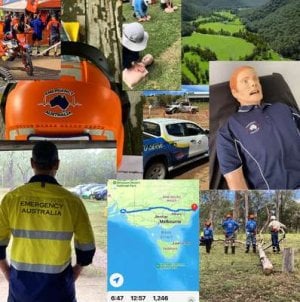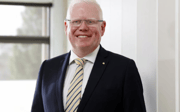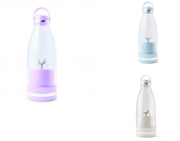Are you making these critical mistakes in a medical emergency? Doctors share must-know tips!
By
Danielle F.
- Replies 7
When a medical emergency strikes, every second counts, and the actions you take—or don't take—can have a profound impact on the outcome. It's a situation that can overwhelm even the most composed individuals, but knowing what not to do is just as crucial as knowing what to do. Seasoned emergency services doctors have shared their expertise on the critical mistakes to avoid during a medical emergency, and we at the Seniors Discount Club are here to pass on this lifesaving knowledge to our community.
First and foremost, resist the urge to consult Dr Google or phone a friend for advice. While it's natural to seek reassurance or information when faced with the unknown, this can lead to dangerous delays in getting professional help. Dr Darria Gillespie, an emergency services doctor with over a decade of experience, emphasises the importance of contacting emergency services immediately. 'When in doubt, call 000. Do not go to Google, Reddit, TikTok, or others for your advice first,' she advises.
Similarly, Dr Jay Ladde, an emergency services veteran of 25 years, has witnessed the consequences of hesitation. He recalls an instance where his own parents called him about his father's alarming symptoms instead of dialling emergency services. 'Yes, I am an hour and a half away, I can't help you just like that, call 000 and someone will arrive faster,' he had to remind them.
Another common error is choosing to drive yourself or a loved one to the hospital in an attempt to save on ambulance costs. While it's true that ambulance fees can be steep, the risk of delaying critical care far outweighs the financial concern. Dr Ladde warns, 'If you can't feel one side of your body, then that is not the time to drive yourself—or get someone to drive you—to the hospital.' Ambulances not only provide immediate medical attention en route to the hospital but also ensure that patients are taken to the right facility for their specific needs.
In the event that you do head to the hospital, don't forget to bring your phone and a charger—preferably with a wall plug. Dr Gillespie points out that many people arrive with just a USB cable, expecting to find a USB port, but hospitals may not be equipped with these. Having a charged phone and a charger ensures that you can stay in contact with loved ones and medical staff if separated.
Moreover, it's crucial not to leave a patient alone in emergency services. A companion can provide emotional support, help communicate the patient's history, and ensure they receive timely care. Dr Gillespie and Dr Ladde both stress the importance of staying with the patient, as it can be comforting and can even expedite the process of being seen by a doctor.
Lastly, always speak up for yourself or your relatives. Advocating for the patient is essential, but it's also important to be understanding of the emergency service's triage system, where the sickest patients are prioritised. Dr Gillespie shares an anecdote about a mother who insisted on an X-ray machine being brought to her child, resulting in lower quality images. She also recalls a patient who listed 25 medication allergies without explaining the reactions, which could significantly affect treatment decisions.
In summary, during a medical emergency, remember to:
1. Call emergency services immediately through their hotline 000.
2. Use an ambulance for serious conditions to avoid delays and ensure proper care.
3. Bring your phone and a charger with a wall plug to the hospital.
4. Stay with the patient to provide support and assist with communication.
5. Advocate for the patient while being mindful of the emergency services' triage process.

By avoiding these critical mistakes, you can help ensure the best possible outcome in a medical emergency. Remember, it's better to be safe than sorry, and the decisions you make in those crucial moments can be life-changing. Share your thoughts and experiences with us in the comments below—your insights could help others navigate these high-pressure situations.
First and foremost, resist the urge to consult Dr Google or phone a friend for advice. While it's natural to seek reassurance or information when faced with the unknown, this can lead to dangerous delays in getting professional help. Dr Darria Gillespie, an emergency services doctor with over a decade of experience, emphasises the importance of contacting emergency services immediately. 'When in doubt, call 000. Do not go to Google, Reddit, TikTok, or others for your advice first,' she advises.
Similarly, Dr Jay Ladde, an emergency services veteran of 25 years, has witnessed the consequences of hesitation. He recalls an instance where his own parents called him about his father's alarming symptoms instead of dialling emergency services. 'Yes, I am an hour and a half away, I can't help you just like that, call 000 and someone will arrive faster,' he had to remind them.
Another common error is choosing to drive yourself or a loved one to the hospital in an attempt to save on ambulance costs. While it's true that ambulance fees can be steep, the risk of delaying critical care far outweighs the financial concern. Dr Ladde warns, 'If you can't feel one side of your body, then that is not the time to drive yourself—or get someone to drive you—to the hospital.' Ambulances not only provide immediate medical attention en route to the hospital but also ensure that patients are taken to the right facility for their specific needs.
In the event that you do head to the hospital, don't forget to bring your phone and a charger—preferably with a wall plug. Dr Gillespie points out that many people arrive with just a USB cable, expecting to find a USB port, but hospitals may not be equipped with these. Having a charged phone and a charger ensures that you can stay in contact with loved ones and medical staff if separated.
Moreover, it's crucial not to leave a patient alone in emergency services. A companion can provide emotional support, help communicate the patient's history, and ensure they receive timely care. Dr Gillespie and Dr Ladde both stress the importance of staying with the patient, as it can be comforting and can even expedite the process of being seen by a doctor.
Lastly, always speak up for yourself or your relatives. Advocating for the patient is essential, but it's also important to be understanding of the emergency service's triage system, where the sickest patients are prioritised. Dr Gillespie shares an anecdote about a mother who insisted on an X-ray machine being brought to her child, resulting in lower quality images. She also recalls a patient who listed 25 medication allergies without explaining the reactions, which could significantly affect treatment decisions.
In summary, during a medical emergency, remember to:
1. Call emergency services immediately through their hotline 000.
2. Use an ambulance for serious conditions to avoid delays and ensure proper care.
3. Bring your phone and a charger with a wall plug to the hospital.
4. Stay with the patient to provide support and assist with communication.
5. Advocate for the patient while being mindful of the emergency services' triage process.
Key Takeaways
- Emergency services doctors stress the importance of calling emergency services immediately instead of relying on non-professional advice such as from friends, online resources, or social media platforms during a medical emergency.
- Patients are advised not to drive themselves or others to the hospital during serious medical incidents, as it can delay crucial medical attention and pose additional risks.
- It is recommended to bring a charged phone and charger to the emergency services to maintain communication, particularly because hospitals may not have USB ports available for patient use.
- The presence of a friend or family member in emergency services is valuable both for patient support and for providing accurate medical history to healthcare providers. Speaking up and advocating for oneself or a relative in the emergency services is also important for receiving timely care.
By avoiding these critical mistakes, you can help ensure the best possible outcome in a medical emergency. Remember, it's better to be safe than sorry, and the decisions you make in those crucial moments can be life-changing. Share your thoughts and experiences with us in the comments below—your insights could help others navigate these high-pressure situations.








